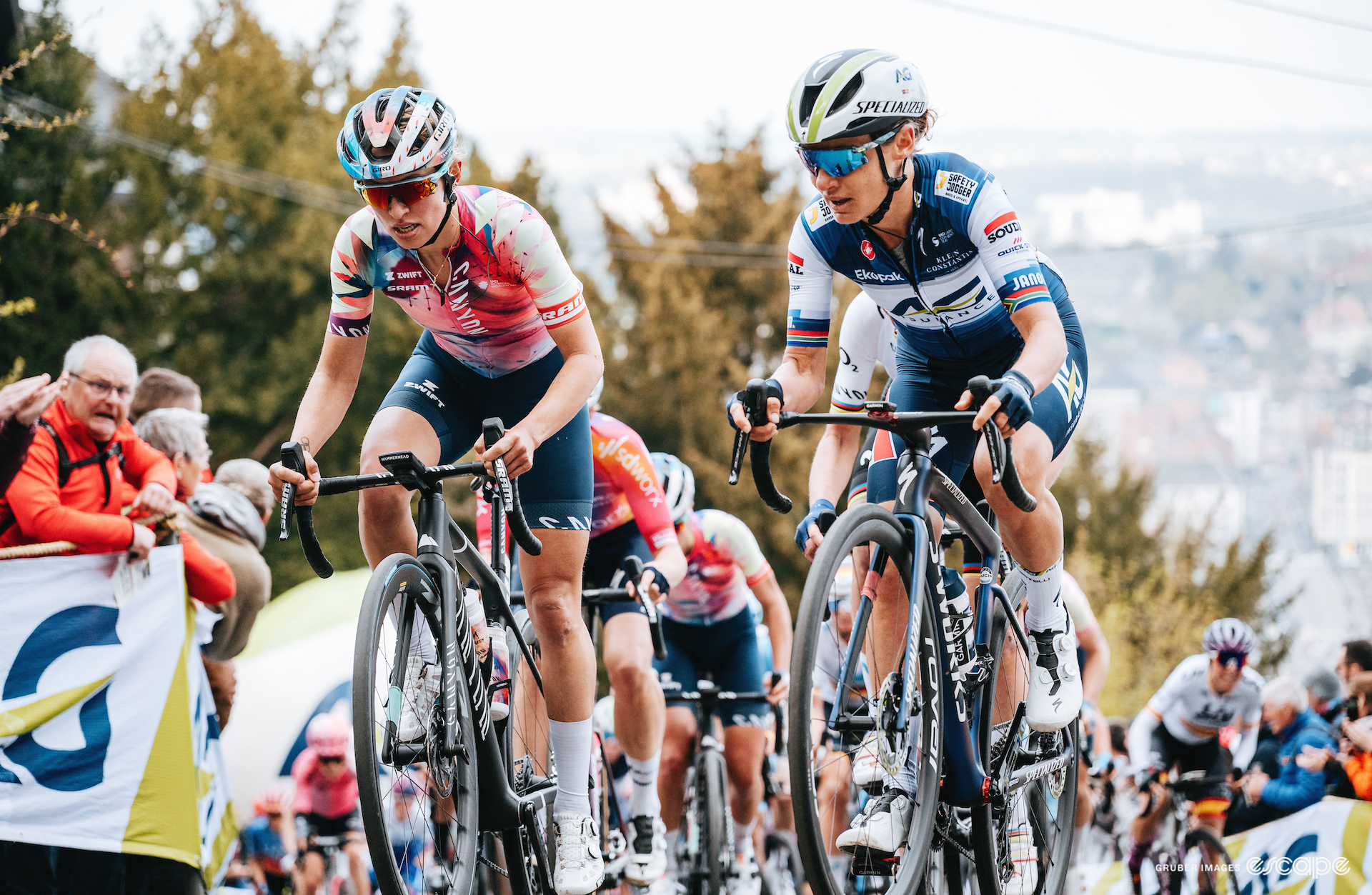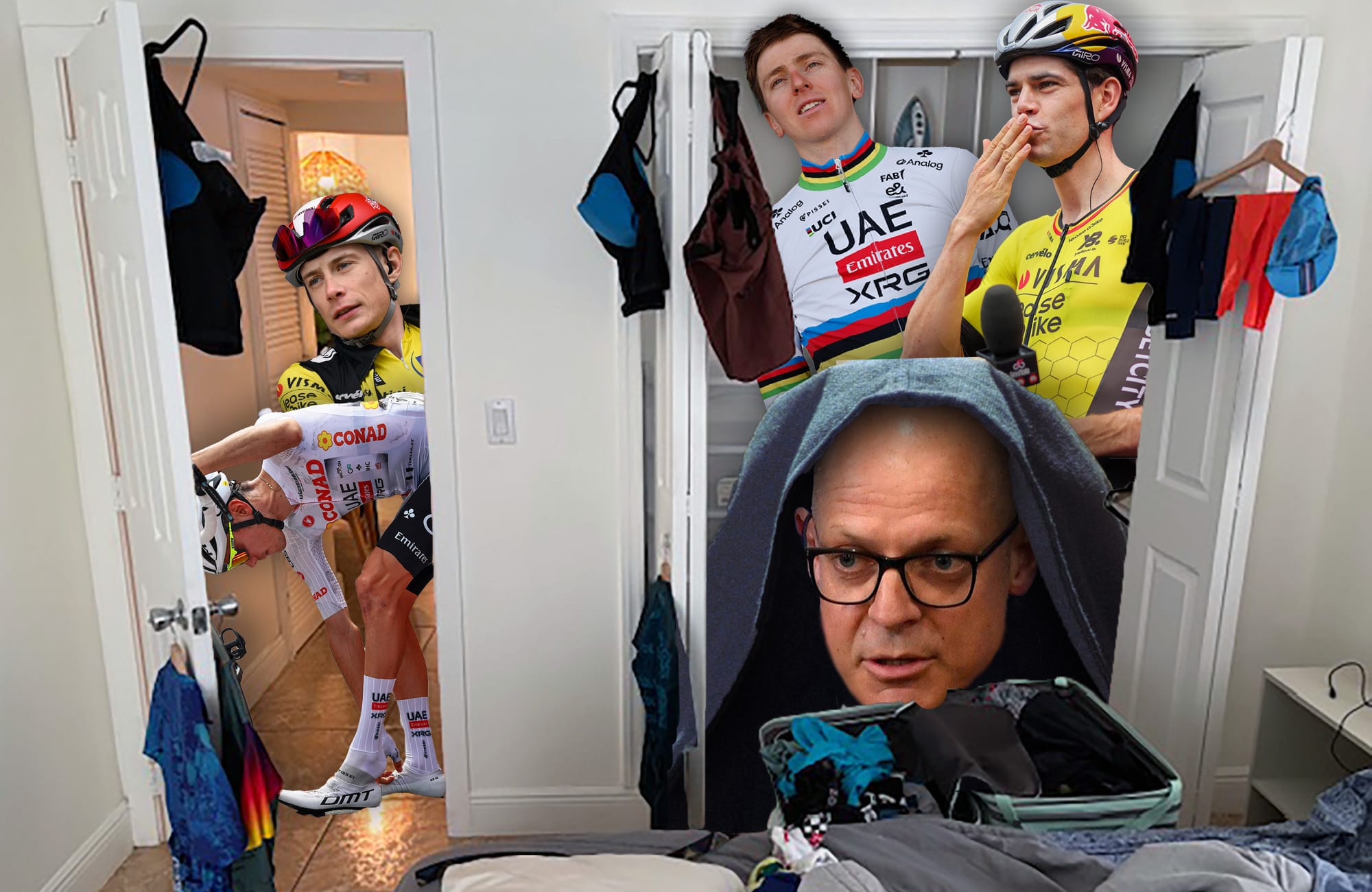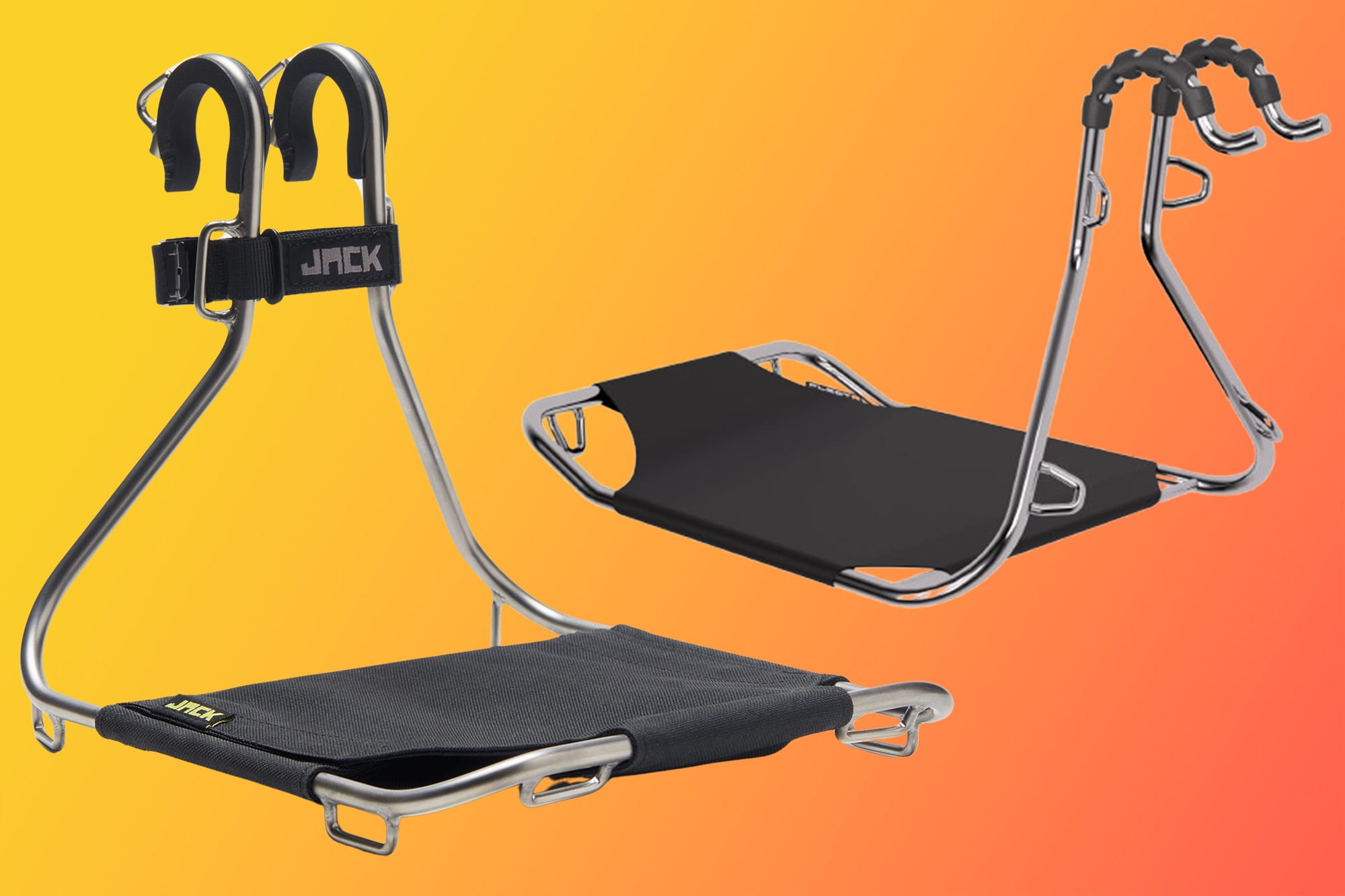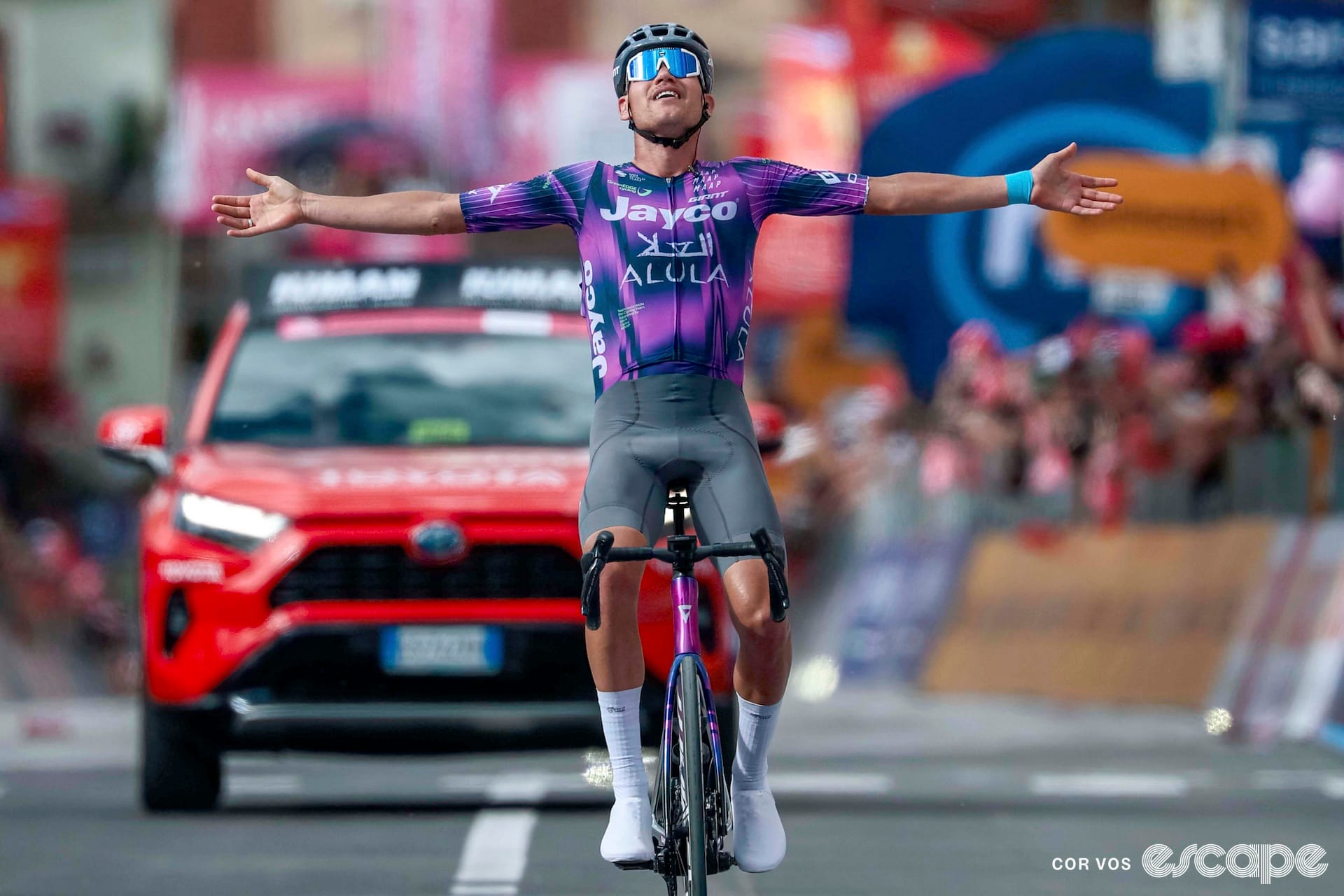After two stages marred by safety concerns, the UCI has stepped in to cancel the CIC Tour des Pyrénées before stage 3.
With stage 1 defined by a lack of security provided by the race organisation, things came to a head on Saturday’s stage 2 as the peloton took matters into their own hands. Though there was the option to abandon the event on an individual basis, the riders opted for a compromise, keeping the race neutralised until the foot of the Hautacam in the last 14 km.
But the debate continued once the stage was over, and into the morning of stage 3 when teams began to withdraw from the race.
Stage 1 winner and GC runner-up Ashleigh Moolman Pasio made a statement following the race cancellation that explains the situation.
“It was a complicated night and morning. There have been a lot of discussions and debate,” Moolman Pasio said. “It’s hard to get everyone on the same page because we all have different motivations and levels in this race. It’s really easy for the Women’s WorldTour teams to make a statement and to leave because they are part of the WorldTour. They have a lot of security in races. In a race like this one, of the third category UCI 2.1, we have different objectives and teams. As long as there were UCI points on the line, the teams who want to go to the WorldTour, or trying to move up or obtain sponsors, wanted these points.”
The 37-year-old pointed to the different motivations of the various teams, indicating WorldTour outfits - like Jumbo-Visma, the first team to voluntarily withdraw - for whom TV coverage and UCI points are less of a concern. For smaller teams like Moolman Pasio’s own second-tier Continental outfit, AG Insurance-Soudal Quick-Step, it’s not so easy to sacrifice what’s on offer.
“I tried to see all the sides and had a proposal,” Moolman Pasio continues. “I am a bit older and have my own business so I understand a bit more. A race is also a business after all. My proposal was to start and do the race so we respect all parties. We would neutralize it. We can take advantage of the TV exposure that was paid for and we can make a statement this way. I thought that was the best for all parties involved. The smaller teams didn’t agree to this proposal because they feared they wouldn’t be the talking points in the coverage or feature in the coverage.”
What made things tricky was the race organisation’s apparent unwillingness to make a definitive decision, leaving it up to the UCI to bring down the hammer 30 minutes before the stage was due to start.
“I was also in touch with the UCI. It’s very unfair that we as riders have to make this call. As a racer I do take risks. I am a bit crazy there. I am thriving on adrenaline and therefore I am never 100% objective in this. The UCI can be objective. They were clear and they cancelled.
“As AG Insurance-Soudal Quick-Step we appreciate the hard work from the race organizers and sponsors. I hope the race has a future. I spoke to sponsors and hope that the race can continue next year. I explained to sponsors why this happened. We think it’s a great race with great potential in a great area.”
Moolman Pasio’s last words were for women’s cycling as a whole, and specifically that corners ought not be cut as the sport seeks to grow. Her point carries all the more weight now considering both this event and the recent cancellation of the Lotto Belgium Tour due to lack of marshals.
“Finally, I would like to add one important thing. There is a lot of pressure in women’s cycling now to tick all the boxes: have the races, have the prize money, have the TV exposure. The priority now is that it should be in the correct order. The organisers have prioritised exposure and prize money but priorities need to be in the correct order: first safety, then exposure, and then prize money. When our safety is 100% secured, we would like to return again next year.”
Did we do a good job with this story?






